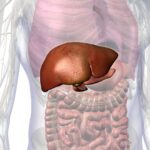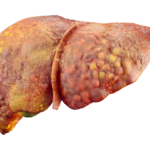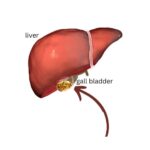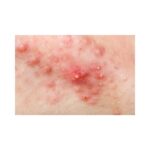Asthma: Causes, Symptoms, Lab Tests, Prevention, and Homeopathic Remedies
By Homeopathic Dr. Basharat Ali
Asthma is a chronic respiratory condition that affects millions worldwide. It can disrupt daily life with its persistent symptoms, but with the right approach, including homeopathic treatments, relief is possible. Below, we explore the causes, symptoms, lab tests, prevention strategies, home remedies, and the top 20 homeopathic medicines for managing asthma.
Understanding Asthma
Asthma is characterized by the inflammation and narrowing of the airways, leading to breathing difficulties. The severity of asthma can vary from mild to life-threatening, making early diagnosis and effective management crucial.
Causes of Asthma
Asthma can be triggered by various factors, including:
- Genetic Predisposition: A family history of asthma or other allergic conditions.
- Allergens: Pollen, dust mites, pet dander, and mold can trigger asthma symptoms.
- Environmental Factors: Air pollution, cigarette smoke, and chemical fumes.
- Respiratory Infections: Cold, flu, and other respiratory infections can exacerbate asthma.
- Physical Activity: Exercise-induced asthma is triggered by physical exertion.
- Emotional Stress: Intense emotions and stress can lead to an asthma attack.
Symptoms of Asthma

The symptoms of asthma can vary from person to person but typically include:
- Shortness of Breath: Difficulty in breathing, especially during physical activity or at night.
- Wheezing: A whistling sound when breathing.
- Chest Tightness: A feeling of pressure or tightness in the chest.
- Coughing: Persistent coughing, often worsening at night or early in the morning.
- Fatigue: Feeling tired or weak due to difficulty in breathing.
Lab Tests for Asthma
To diagnose asthma and assess its severity, the following lab tests are commonly recommended:
- Spirometry: Measures the airflow and volume of air exhaled after a deep breath.
- Peak Flow Measurement: Assesses how well the lungs are working by measuring the force of exhalation.
- Methacholine Challenge: Tests the sensitivity of the airways.
- Allergy Testing: Identifies potential allergens that may trigger asthma symptoms.
- Chest X-ray: Helps rule out other conditions with similar symptoms.
Prevention Strategies

Preventing asthma attacks involves reducing exposure to triggers and adopting a healthy lifestyle:
- Avoid Allergens: Minimize exposure to known allergens like dust, pet dander, and pollen.
- Control Indoor Humidity: Keep humidity levels low to prevent mold growth.
- Use Air Purifiers: Clean air filters can help reduce airborne allergens.
- Quit Smoking: Avoid smoking and exposure to secondhand smoke.
- Maintain a Healthy Diet: A balanced diet rich in fruits, vegetables, and omega-3 fatty acids can improve overall respiratory health.
- Regular Exercise: Engage in moderate exercise to strengthen the lungs, but consult with a doctor to manage exercise-induced asthma.
Home Remedies for Asthma Relief
Home remedies can complement your treatment plan and provide relief from asthma symptoms:
- Ginger Tea: Known for its anti-inflammatory properties, ginger can help relax the airways.
- Honey and Lemon: A mixture of honey and lemon juice can soothe the throat and reduce coughing.
- Turmeric Milk: Turmeric’s anti-inflammatory effects can help reduce airway inflammation.
- Garlic: Garlic has anti-inflammatory properties that may help alleviate asthma symptoms.
- Eucalyptus Oil: Inhaling steam with eucalyptus oil can clear the airways and reduce wheezing.
Best Homeopathic Medicines for Asthma
Homeopathy offers a holistic approach to managing asthma by addressing the underlying causes and symptoms. Here are 20 of the best homeopathic medicines for asthma:
- Arsenicum Album: For asthma with anxiety and restlessness.
- Ipecacuanha: For persistent coughing and difficulty breathing.
- Nux Vomica: Effective for asthma triggered by digestive issues.
- Pulsatilla: For asthma worsened by exposure to cold air.
- Bryonia: For dry cough and chest pain.
- Carbo Vegetabilis: For asthma with bloating and belching.
- Kali Carb: For asthma attacks around 3 a.m.
- Spongia Tosta: For dry, barking cough with asthma.
- Antimonium Tartaricum: For asthma with excessive mucus production.
- Natrum Sulphuricum: For asthma worsened by damp weather.
- Sambucus Nigra: For asthma in children with nasal obstruction.
- Blatta Orientalis: For asthma triggered by dust or mold.
- Lobelia Inflata: For asthma with nausea and vomiting.
- Sulphur: For asthma with skin eruptions or rashes.
- Phosphorus: For asthma with bleeding tendencies.
- Chamomilla: For asthma in children, especially during teething.
- Medorrhinum: For asthma with a history of gonorrhea or other chronic conditions.
- Thuja Occidentalis: For asthma with warts or skin growths.
- Cuprum Metallicum: For asthma with muscle cramps and spasms.
- Aconitum Napellus: For sudden asthma attacks triggered by cold wind.


































































































Thanks – Enjoyed this blog post, how can I make is so that I get an update sent in an email when you make a fresh update?
Very interesting info!Perfect just what I was searching for!
very good put up, i definitely love this website, keep on it